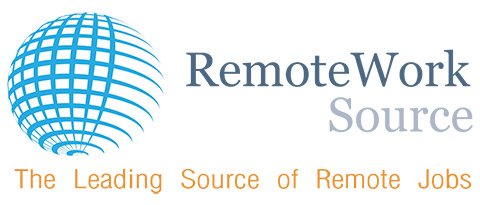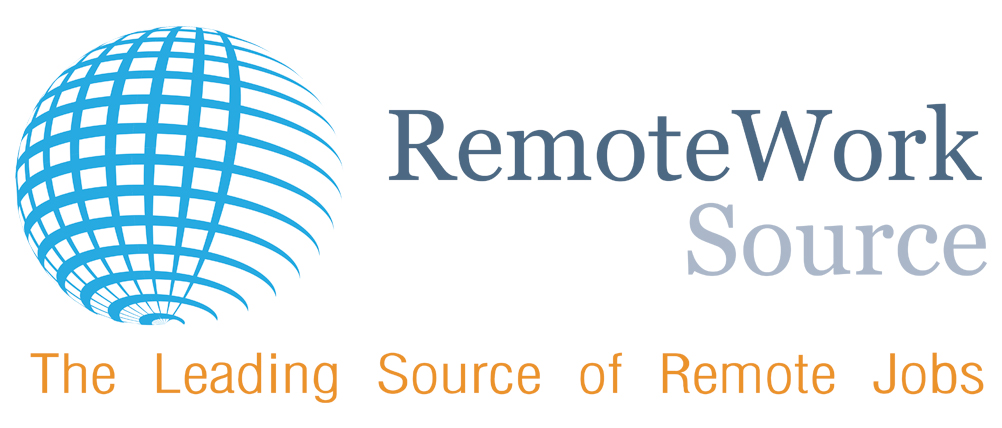How To Have Work-Life Balance When You Work Remotely
Remote working offers tremendous work-life balance–if you work smart.
If you could gather inside trade secrets before embarking on a venture, would you? For example, you often think about working from home but wonder how doable this arrangement would be. Is remote work as easy and rewarding as those beachy images make it appear? Or is it as complicated as other people make it seem?
To give you the scoop on what working from home is like, RemoteWork Source, Inc. spoke with professionals with years of successful telecommuting experience under their belts. How they ended up working from home varied; however, their shared insight reveals several common threads.
Work-Life Balance
Our successful teleworkers all confirm: Telecommuting offers tremendous work-life balance. What each person desires to balance is an individual’s preference. But there is balance.
Linda Baldwin, Senior Resourcing Manager with Capability Jane, discovered that without a daily commute she wanted to work longer hours. “I am a lot more committed and passionate about my role and the company than I ever was when in a corporate office based environment,” she says. For Baldwin, a zero commute meant doing more of what she liked doing: working.
Speaking of his family, cloud advocate and blogger at The 30-Second Commute, Bill Seybolt says that “eliminating my commute gave me greater margin with the people I care about the most.” With no more commute Seybolt is now able to be physically present with his family. For him, life regained its balance.
During his time as a remote Production Editor with Lexis Nexis, Michael Garone found that working from home helped him feel relaxed, which in turn increased his productivity. “I found I was able to complete projects faster and easier from home than at the office”, he says. This gave Garone a lot more “me time”.
While Fortune.com journalist, Anne Fisher, has long recognized the increased productivity and family time telecommuting affords, she says that when she began telecommuting in 2001, she overlooked the obvious: That working from home would mean being alone.
“I don’t think I realized at the outset how much I was going to miss seeing other people…These are things you take for granted when you work in an office but, when they’re suddenly not there anymore and you’re all by yourself day in and day out, it is a real adjustment.” Fisher points out, however, that with fewer co-worker distractions she can focus solely on her work, allowing her to get more done in less time, freeing up more time to do as she pleases.
Rules of the Game
To reach the balance everyone has come to enjoy, they all agreed there were a few “rules” that helped them obtain this balance. For starters, establishing boundaries is crucial.
This means being fully present in each moment, whether working on a project or watching your kids play sports. Seybolt, who has younger children, suggests: “Do not let work seep into other areas of your home life.”
Similarly, those around you shouldn’t be allowed to disrupt your work life. Says Baldwin, “Ensure other people in your personal life understand that you work from home. Firmly discourage drop-ins during your planned working hours.”
Other boundaries are those teleworkers set for themselves. Garone recommends that remote workers “not watch TV or play games or get involved in anything personal until after lunch or after your work day has ended.” Anne Fisher agrees and offers two rules: “One, never turn on the TV until after you’ve finished your to-do list for the day; and two, never go near the refrigerator except for lunch!”
As with any goal you want to achieve, there have to be parameters. Set them ahead of time and work from there.
Connecting with colleagues
Part of the balancing act for remote workers is maintaining the right amount of contact with people you work with, yet don’t see. Many people whom Fisher worked with when she began telecommuting fourteen years ago are no longer with Fortune. Now, because she lives so far from the company’s headquarters, she doesn’t even know the majority of her peers. This means good communication is essential.
“I think it’s really essential to simulate, as much as possible, the contact you would have (with bosses especially) if you were down the hall, in the office. You do not want to be ‘out of sight, out of mind’!” Warns Fisher.
This is where leveraging communication and collaborative technology becomes crucial. But also just as important is honing your soft skills, such as being sensitive to others and good listening. Seybolt explains: “It’s extremely helpful to engage in active listening to make sure you catch everything. It’s the old Stephen Covey line, ‘Seek first to understand then to be understood’.”
Fortunately, some of the best communication tools are readily and inexpensively available, such as the telephone, email, instant messaging, and (one of Seybolt’s favorites) Google Hangouts. Technology today allows individuals to be flexible and creative in how they connect with each other–both individually and collectively.
Is Telecommuting Right for You?
To determine if teleworking is right for you, it seems logical to look at your job description first. As Fisher points out: “Any job where you have to meet with others frequently or participate in collaborative projects would be really hard to do remotely.” After all, teleworking is somewhat of a solo affair.
But there is another important aspect of teleworking: You. You need to be trustworthy, so that your employer knows you are working when you say you are. And you need to be self-reliant, able to work effectively without constant instruction or input from others.
So rather than looking primarily at your job description to identify if teleworking will work for you, look at your home life. Garone maintains that “a person will only know [if they are right for remote work] by how they juggle their home life.” A family that requires constant care may mean that even the most solo of professions will not work out for you. If you are easily distracted you might not be capable of focusing long enough to be productive even if there’s no one around you interrupting you.
Baldwin contends, “Telecommuting is working smart, it enables people to have fewer distractions and gain valuable work-life balance, for this employees will give back so much more, too.” Perhaps before asking whether your job is suitable for teleworking you should first ask yourself this question: Am I able to work smart?
The Future of Remote Work
Everyone we spoke to recognizes that remote working is a growing work style and its outlook looks bright. Technology has made it possible to communicate, share information, collaborate, and measure progress, all without needing to be in the same room–or even the same country.
Furthermore, notes Seybolt, “The mindset of ‘if I can’t see you, you’re not working’ is slowly going away.” Supervisors are finally starting to manage by results rather than by hours spent at a desk.
Additionally, the benefits of remote work are very clear to companies today. States Fisher, “Employers like [telework] because it saves them money on real estate and other expenses–plus allowing people to work remotely is a huge recruiting advantage.”
Takeaway
Success in working from home is easier than you think if you follow some simple guidelines: Be realistic about what teleworking will mean for you and your family; establish routines and stick to them; connect with other people at work or in your industry using simple technology; and look first at your own characteristics when determining if your job is going to work in a telecommuting capacity.
Your turn: Are you a “veteran” teleworker with further insight for new telecommuters? Or, are you thinking about telecommuting and have some questions? Please add them below!
Are you interested in having work-life balance but don’t know where to find such companies? Learn how to find telecommuting jobs with RemoteWork Source!
Download your free Career Strategy Cleanup eGuide and Worksheet!
Let’s talk more about this! Find me on Facebook, Twitter, and LinkedIn.
Category: Telecommuting








